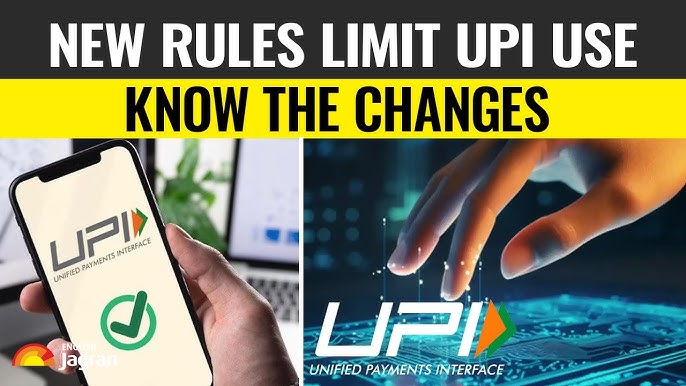From August 1, 2025, the National Payments Corporation of India (NPCI) has introduced some major changes in the Unified Payments Interface (UPI) rules. These changes will directly affect how people use UPI for balance checks, AutoPay, and daily transactions. If you use apps like Google Pay, PhonePe, Paytm, BHIM, or any UPI-enabled app, you need to understand these updates carefully.
This move is aimed at improving digital safety, stopping fraud, and managing transaction loads better. Let’s explore what changes are being made and how they will affect you.
Overview of the New UPI Rules (Effective August 1, 2025)
| Rule Area | Old Limit/Policy | New Limit/Update (from Aug 1) |
| Balance Check Limit | No limit | 5 times per day per app |
| AutoPay (UPI Mandate) | ₹15,000 per day | ₹25,000 per day |
| UPI Transaction Limit | ₹1 lakh per day | No change (still ₹1 lakh) |
| High-Value Transaction | No extra step | Mandatory 4-digit PIN confirmation |
| Transaction Update SMS | Free for all | Will be chargeable for more than 5/day |
| Inactive UPI IDs | No expiry | Deactivated after 1 year of inactivity |
Balance Check Limit Introduced
Changing from August 1: New Limits on Balance Check, AutoPay & Transaction Updates Earlier, users could check their bank account balance through UPI apps any number of times a day. But from August 1, there will be a limit of 5 balance checks per day per app.
Why?
To reduce server load and prevent misuse by bots or spammers who send repeated balance check requests.
Tip: Use your balance check wisely. Avoid checking it again and again in one day unless necessary.
AutoPay Limit Increased to ₹25,000
UPI Rules Good news! The AutoPay limit is increasing from ₹15,000 to ₹25,000 per day. This means if you’ve set recurring payments like OTT subscriptions, electricity bills, EMIs, or insurance premiums via UPI AutoPay, you can now set up mandates for higher amounts.
This is helpful for:
- Paying monthly SIPs or mutual fund investments
- Auto-debit of large utility bills
- Managing travel bookings or memberships
Extra Security for High-Value Transactions
If you’re transferring more than ₹50,000 in one go, you’ll now have to confirm it using a special 4-digit PIN in addition to your normal UPI PIN.
Why this change?
To provide double security and prevent fraud in high-value UPI transfers. This will especially help in case of stolen phones or cloned apps.
Charges for Too Many Transaction Notifications
Earlier, UPI Rules apps used to send SMS alerts for every transaction for free. But now, only the first 5 SMS notifications per day will be free. After that, extra charges may apply, as per your mobile operator.
What does this mean for users?
- You may get fewer alerts if you exceed the daily free SMS limit.
- Consider enabling in-app notifications instead of relying only on SMS.
Inactive UPI IDs Will Be Closed
UPI Rules If your UPI ID (like yourname@upi) is not used for 12 months or more, it will be automatically deactivated from August 1.
Reason:
To clean up the UPI system and prevent misuse of old or unused UPI IDs.
Tip: If you have old UPI IDs on other bank accounts that you still want to use, make at least one small transaction before July 31.
What You Should Do Before August 1
Here are some simple steps you can take to avoid trouble:
- Make sure you’re not overusing balance checks.
- Check your UPI mandates and update them if you need to pay more than ₹15,000.
- Be ready to enter an extra PIN if transferring large amounts.
- Use your UPI ID at least once if it has been inactive for a long time.
- Enable app notifications so you don’t miss alerts when SMS limits apply.
Why These Changes Are Important
UPI has become India’s most used digital payment system, with over 12 billion transactions every month. But with this popularity, the risk of fraud, phishing, and system overload has also increased.
These new changes are introduced to:
- Improve user safety
- Stop unauthorized usage
- Reduce server pressure
- Make UPI more secure and user-friendly
Final Words
UPI Rules While some of these changes may feel inconvenient at first (like SMS charges or limited balance checks), they are made for better security and smoother experience for users. UPI is growing fast, and these new rules will help keep it safe, strong, and efficient.

